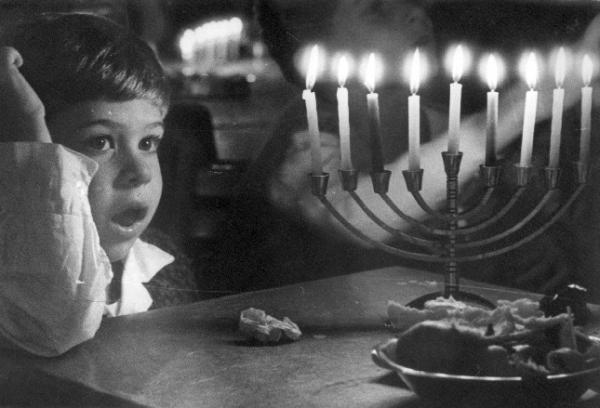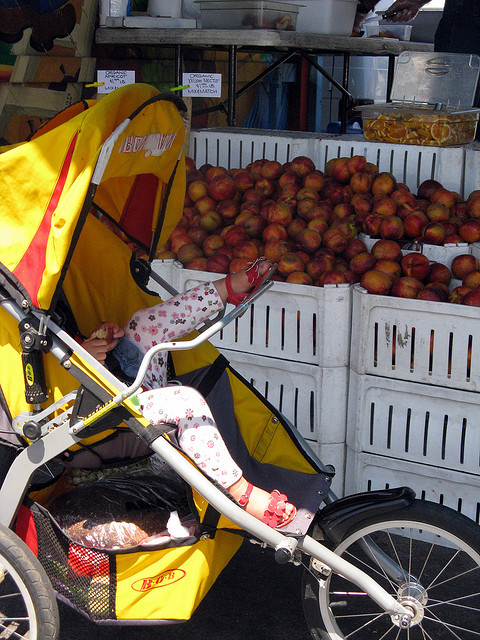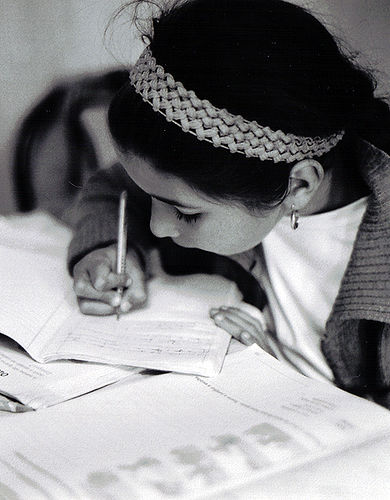Author Archives: Maya Bernstein
December 3, 2013 by Maya Bernstein
Thanks-giving
 Last year, this time, I was struck with an unexpected virus, which sent me spinning. It hit me out of the blue, while I was swimming. The pool seemed to be in strange constant motion even when I was gripping the wall, as if the waters were rocking me, sending me back and forth, back and forth. It reminded me of the small pool in the motel in Santa Monica, where my family would stay when visiting my father’s parents, who had moved to L.A for the weather from the grimy, snowy Bronx. We were there in 1989, when the massive earthquake hit San Francisco, and the pool in that motel looked like someone had lifted it on one side and dropped it down, hard. Water sliding wave-like, up and down, back and forth, for hours and hours.
Last year, this time, I was struck with an unexpected virus, which sent me spinning. It hit me out of the blue, while I was swimming. The pool seemed to be in strange constant motion even when I was gripping the wall, as if the waters were rocking me, sending me back and forth, back and forth. It reminded me of the small pool in the motel in Santa Monica, where my family would stay when visiting my father’s parents, who had moved to L.A for the weather from the grimy, snowy Bronx. We were there in 1989, when the massive earthquake hit San Francisco, and the pool in that motel looked like someone had lifted it on one side and dropped it down, hard. Water sliding wave-like, up and down, back and forth, for hours and hours.
Now, with the gift of distance, the appreciation that it was not so bad, a case of vestibular neuritis, a relatively common infection of the inner ear, which causes extreme vertigo and can take up to 6 months to heal, I feel rather like the protagonist in Lionel Shriver’s recent story in the New Yorker, who, after a frightening experience in an African creek, “was disheartened to discover that maturity could involve getting smaller. She had been reduced. She was a weaker, more fragile girl…” This is contrary to that sentiment that what doesn’t kill you makes you stronger. I have been feeling that perhaps becoming stronger involves admitting where one is weak. It is strange, uncertain territory for me.
When I was healing, my family spent a long-weekend away together. I was well enough to make the car journey, and to take slow walks, breathing in the cold fresh air, and to make pasta and hot cocoa. For those few days, we had no agenda other than to be together, move from inside in our PJs to outside in our boots, and back inside again. The kids watched clips of the Sound of Music over and over, and then acted out the songs in the elaborately planned productions that young children put on when they’re not being rushed off to school or sports or lessons. My illness had forced me into a strange alternative, parallel universe, moving at a radically different speed. I was on sick leave from work, couldn’t drive, couldn’t sit in front of the computer, and spent many days lying on the couch, looking out the window. That weekend, my family cautiously and kindly entered my forced, unnatural time zone, and it was unexpectedly delightful. We all lay on the couch together, watching the misty morning light turn to the bright blue of day, then wane into the lavender evening, and when our own reflections stared back at us from the glass, we turned to each other and smiled.
This year, we are heading back to the same area to celebrate Thanksgiving. Already, it is a very different trip. We are back in the time zone of the healthy. We are signing the kids up for ski lessons. We are bickering over what to bring. In these days before we go, I am preparing for a big business trip, trying to meet deadlines, checking emails at red lights, attending my children’s Thanksgiving shows, and packing up the family. The memory of sitting still and looking out the window feels as if it is somehow not my own. As if it is part of some other lifetime, some other being.
- 2 Comments
November 4, 2013 by Maya Bernstein
Halloween, Coda
 On Halloween night, my kids were in bed, and I was driving home from the supermarket. I drove more slowly than usual, because the normally quiet streets were more alive, with groups of middle school kids in eerie costumes laughing and skipping unawares across the street, and with parents out late with their little ones, shining their flashlights onto houses to see if they are worth a knock. I rolled slowly by, thinking of all the reasons I heard as a child, growing up in a Modern Orthodox Jewish community, about why my family doesn’t celebrate Halloween– we have so many other holidays in the fall; we don’t like the idea of “trick or treat” – give me candy or I’ll trick you; we have Purim. I thought of how often my kids had been asked over the past weeks what they’re dressing up as, and their big embarrassed eyes looking up at me, seeking help about how to answer. We don’t celebrate Halloween, I say smiling, and the conversation is killed.
On Halloween night, my kids were in bed, and I was driving home from the supermarket. I drove more slowly than usual, because the normally quiet streets were more alive, with groups of middle school kids in eerie costumes laughing and skipping unawares across the street, and with parents out late with their little ones, shining their flashlights onto houses to see if they are worth a knock. I rolled slowly by, thinking of all the reasons I heard as a child, growing up in a Modern Orthodox Jewish community, about why my family doesn’t celebrate Halloween– we have so many other holidays in the fall; we don’t like the idea of “trick or treat” – give me candy or I’ll trick you; we have Purim. I thought of how often my kids had been asked over the past weeks what they’re dressing up as, and their big embarrassed eyes looking up at me, seeking help about how to answer. We don’t celebrate Halloween, I say smiling, and the conversation is killed.
This year, we are sending our youngest child to a non-Jewish preschool. It is walking distance from our house, and it’s open all day long, designed for families like ours, with two working parents. It’s a wonderful place, completely play-based, with a philosophy of positive discipline, inquiry-based learning, and creativity. Our son couldn’t be happier. But it is our first time as parents navigating having our child in a non-Jewish environment. His pre-school has been preparing for Halloween for weeks. He’s been singing The Itsy Bitsy Spider and Little Miss Muffet, has learned to say “Trick or Treat,” and has been carving and decorating pumpkins. We do not celebrate Halloween in our family, and this inundation has taken us by surprise. We developed a party line: your school celebrates Halloween, but we do not celebrate Halloween in our family. My son’s response? I do! I’m going to go around with a bag and say Trick or Treat and get candy! When I told him that he, alas, wouldn’t, he burst into tears, inconsolable.
I was away on business the week before Halloween, and returned home with a pilot’s cap for my son. It just happened that he wore it to school on Halloween, my first day home. He wore it because it was new, and because he loves airplanes. Not because it was Halloween. But when I dropped him off at school, and his classroom was dark, full of cobwebs and spider mats, glow in the dark paint and little pumpkins, and all the kids were in costume, he and I looked at each other. I’m a pilot, he declared, and I nodded, yup, you’re a pilot, and skedaddled out of there.
As I drove home on Halloween night, watching women in witch hats open their doors to the kids who live on their block, watching families and friends coming together in the dark, engaging in face-to-face conversations, creating real human micro-communities, I saw, for the first time, the beauty in this holiday. And I wondered – what value is there in refraining from participation? Is it impossible to be committed to one set of beliefs and practices, while participating in others? Halloween is one of our lines in the sand, a line that we have chosen not to cross, as part of our definition of who we are, and who we are not. The line felt more random to me this year, more arbitrary.
This Halloween, I realized that as much as we are raising our children with positive engaging Jewish experiences, we are also deliberately raising them to refrain from other experiences as a pivotal tactic in helping to form their Jewish identities. Perhaps there is a layer of fear that underlines this choice. But there is also a belief, a philosophical commitment, at the heart of this decision. Part of what we are trying to teach our children in their lack of participation in this experience, is how to not fit in, how to not belong. We are giving them practice in choosing to be an outsider, and trying to give them language to make sense of that decision. We are teaching them that they cannot have it all – that choosing one way of living often means having to let go of other ways of living. Not celebrating Halloween is simply one manifestation of that training.
And yet, I’m glad my son went to school on Halloween in his pilot’s hat. It would have been too strange, too hard, for him to go in his kippah, as he normally does. It occurred to me that as we strive to direct his growth, we are actually putting him in a costume each day, asking him to intentionally wear the mask of being Jewish, so that eventually that mask becomes his identity. And I couldn’t help but feel how refreshing it must have been for him, even at his young age, to take off that mask, and put on a mask, briefly, of one of the crowd.
photo credit: Mr. T in DC via photopin cc
- 5 Comments
September 24, 2013 by Maya Bernstein
Autumn Moms
 Another season of frog catching, ice cream licking, wet green hill rolling, firefly chasing, and lake swimming has come to an end. The long days are becoming shorter, and the first blushes of fall are painting a faint tinge of reds, yellows, and oranges into the lush green canopies. The kids are back to school, to the months of routine, rushed mornings, and scheduled afternoons. We’re about to launch them into another year of growth, charting their progress, measuring their successes, and cheering them on as they trip, falter, and get back up.
Another season of frog catching, ice cream licking, wet green hill rolling, firefly chasing, and lake swimming has come to an end. The long days are becoming shorter, and the first blushes of fall are painting a faint tinge of reds, yellows, and oranges into the lush green canopies. The kids are back to school, to the months of routine, rushed mornings, and scheduled afternoons. We’re about to launch them into another year of growth, charting their progress, measuring their successes, and cheering them on as they trip, falter, and get back up.
It always amazes me how much kids grow and change over the summer. They shine out in all directions, limbs elongating, hair tugged down by gravity, bones shooting up to the stars. My five year old learned to bike and swim; her big sister to roller skate and shower by herself; and the three year old was toilet trained. They are all working on keeping their passionate emotions in check when they over boil, and sharing their feelings in open, productive ways. I once attended a professional conference, where, during the initial icebreaker, we were asked to share something new we had learned to do over the course of the year. Many of the participants struggled to think of something. One of the participants had brought her young son with her, and when it was his turn to share, he started rattling off a list: I learned to play basketball, tie my shoes, count by 7s, play the piano, cook an egg, walk my dog, wash my dishes…his list went on and on. We all can grow and change; kids do it at a relentless pace, and without hesitation.
- 2 Comments
August 14, 2013 by Maya Bernstein
Leaning In Means Letting Go
 In her cover story of Lilith’s summer issue, Gabrielle Birkner takes a hard look at the economic challenge facing women who take seriously Sheryl Sandberg’s plea to “lean in” to their careers, even as they begin to have children. She points out that quality day care often costs more than women are earning, and concludes: “Leaning in necessitates not only a “will to lead,” but also a structure that supports women’s ambitions. Access to quality, affordable childcare is key.” In another recent cover story on this topic, Judith Warner, writing for the New York Times magazine, comes to a similar conclusion. She points out that the debate about women in the workplace, with its binary focus on whether or not women should opt to “lean into” work or “lean into” their home lives, is actually misplaced. She writes, “at a time when fewer families than ever can afford to live on less than two full-time salaries, achieving work-life balance may well be less a gender issue than an economic one.”
In her cover story of Lilith’s summer issue, Gabrielle Birkner takes a hard look at the economic challenge facing women who take seriously Sheryl Sandberg’s plea to “lean in” to their careers, even as they begin to have children. She points out that quality day care often costs more than women are earning, and concludes: “Leaning in necessitates not only a “will to lead,” but also a structure that supports women’s ambitions. Access to quality, affordable childcare is key.” In another recent cover story on this topic, Judith Warner, writing for the New York Times magazine, comes to a similar conclusion. She points out that the debate about women in the workplace, with its binary focus on whether or not women should opt to “lean into” work or “lean into” their home lives, is actually misplaced. She writes, “at a time when fewer families than ever can afford to live on less than two full-time salaries, achieving work-life balance may well be less a gender issue than an economic one.”
The “Lean In” debate, with its focus on women and their personal decisions, is masking a broader societal challenge, which is felt to the extreme by families in general, and women in particular. We have not figured out how to ensure that children receive quality care, and the work force quality and committed employees. The lightening rod of this debate has been the working mother, and she has been blamed and shoved from side to side, quite roughly. Warner points out that the pendulum has been swinging wildly, backed up by “scientific studies,” which seem to simply offer support for the latest trend. She implies that the currently popular plea to “lean in” to work life, and to avoid “excessive mothering,” is simply a reaction to the economic climate in which we reside:
The women of the opt-out revolution left the workforce at a time when the prevailing ideas about motherhood idealized full-time, round-the-clock, child-centered devotion. In 2000, for example, with the economy strong…almost 40 percent of respondents to the General Social Survey told researchers they believed a mother’s working was harmful to her children (an increase of eight percentage points since 1994). But by 2010…fully 75 percent of Americans agreed with the statement that “a working mother can establish just as warm and secure a relationship with her children as a mother who does not work.” And after decades of well-publicized academic inquiry into the effects of maternal separation and the dangers of day care, a new generation of social scientists was publishing research on the negative effects of excessive mothering: more depression and worse general health among mothers, according to the American Psychological Association.
- 2 Comments
December 15, 2011 by Maya Bernstein
Shine

Hashomer Hatzair Archives Yad Yaari
My oldest daughter recently performed in her kindergarten’s annual Thanksgiving Extravaganza. What is it about watching your kid in a school performance that turns a parent into dripping, slobbering mush? There is something so visceral about seeing your kid “up there,” shirt tucked in, braids in place, belting out songs and moving like a turkey and reciting her two lines. As the child stands there, hands stiff at her side, telling the i-phoned face audience of grandparents and parents and siblings, “our next song is ‘Run Turkey Run,’” the parent has a moment of meaning and purpose. I have made a difference in the world. My child is doing something; she is active, she is a participant, she is a contributor. It is invaluable to see your child represent something greater than herself, participate in creating meaning with others, and share that meaning with her world. That is where children shine, and that, in turn, re-connects their parents to what is valuable and important in their lives.
The winter holiday season is upon us, and it is an opportunity to shine. Chanukah, probably the most celebrated and public of all Jewish holidays, has two core components to its celebration. The first is lighting Chanukah candles, one candle on the first night, two on the second, three on the third, increasing the light and the candles until eight burn bright on the last night. The second, as important as the first, is publicizing the celebration of the holiday. That is why it is customary to light candles in the windows or doorframes, so that passer-bys can see, and say, “Look! The lights of Chanukah!” As we remind ourselves as a Jewish community of our story of survival, we share that story with others.
- 1 Comment
December 4, 2011 by Maya Bernstein
Farmer’s Market

http://www.flickr.com/pollyann
It happened, and then it was over.
There was nothing much to talk about, and I have mostly forgotten the details. The images are somehow fuzzy, remembered in strange slow motion, as if I am still distracted, surprised that I am in the center of the memory, rather than standing on the side, looking in.
It was a cloudy gray Sunday, late morning. I was in my Super-Mom role; my husband was at the library drinking coffee and reading educational philosophy (on Sundays, he assumes his Super-PhD-Man role), and I was in the park, with our three kids, and my cousin’s two daughters. When my cousin dropped off his girls, his nine year old ran off with my three year old, who promptly fell and skinned her knee and started crying; his seven year old ran off with my six year old, who fell off her scooter and started crying; and the baby started screaming for the swing. My cousin gave me a look. I smiled my Super-Mom smile, answering his unspoken ‘are you sure you can handle this’ question, told my girls to tough it out, and carried the baby over to the swing. And I was fine, and so were the kids, as long as I didn’t think too much about what could happen. I let the girls climb and swing high and jump off and pushed the “what-ifs” aside, because otherwise my husband couldn’t ever work on his PhD, and my cousin’s kids couldn’t slip seamlessly into our family, and that wasn’t the family I wanted.
- 4 Comments
November 2, 2011 by Maya Bernstein
Business Trip

http://www.flickr.com/1flatworld
Six years ago it was evening, and the light came gently through the slats of the hospital window shades, and the room was strangely calm, and it was all so new, and then she was in my arms, a being of radical energy, and I sang to her. Today it was morning of breakfasts and lunches and searching for car keys and rushing and phone calls and singing and dancing of birthday and presents and then of my leaving. Now daytime is flying beneath me is desert before me is evening of working and teaching and she is behind me.
She cried while I applied eye makeup and when I left to catch my flight.
I pinky-promised that I’d try never to travel on her birthday again, but as I sit here tumbling away, I know that this promise didn’t console her. And I know that no matter what I decide or decides me in the future, there will be times when I am not there when she needs me, when she is going in one direction and I in another, when I cannot give her what she needs when she needs it.
As the distance between us grows, in time, in space, I realize that I must learn how to better help her navigate the distances that inevitably arise. Perhaps this is my most important job as her mother.
Today, six years later, I learned something. I write it, share it, so as to attempt to better etch it into my own being, with the hope that it may help me diminish the future distances.
- 2 Comments
October 17, 2011 by Maya Bernstein
The Train: New Poetry
Each week, I travel to and from work by train. My children cling to my legs and wave their arms and shout farewells, as I board my bike and pedal towards the train station, feeling a tight-throated yearning for their sweet presence, and a gravitational pull towards freedom, possibility, self. The train has become a powerful metaphor for my life. As soon as I board, I am acutely aware that I have made a decision and put myself in motion, and then, of a sudden, am not in control, am barreling toward a destination, watching the world beyond the window, wondering. It has become a space of poetry, a liminal space of possibility, and, in its own way, a space of prayer. Below are two poems I wrote during the month of Ellul and the period of the High Holy Days.
- No Comments
July 5, 2011 by Maya Bernstein
Failing Forward
 My daughter, in a post-kindergarten exuberant high, has been exercising her new reading and writing skills by creating “books” in her free time. She wrote one called “Zoo.” It was four computer-paper pages long, taped together. Page one had a picture of a horse, and, underneath, the word “horse.” Page two had a zebra, “zebra.” Page three a whale, “whale.”
My daughter, in a post-kindergarten exuberant high, has been exercising her new reading and writing skills by creating “books” in her free time. She wrote one called “Zoo.” It was four computer-paper pages long, taped together. Page one had a picture of a horse, and, underneath, the word “horse.” Page two had a zebra, “zebra.” Page three a whale, “whale.”
Her next book showed remarkable progress. She titled it “The Magical Book,” and, in a nod to Magritte, flatly and surreally described her drawings. Page one pictures a magic wand and the words: “This is a wand.” Page two has a prancing unicorn and the description: “This is a unicorn,” and so on. Had she merely inserted the word “not,” her artwork would be hanging beside the famous pipe and hotly debated in bars nationwide.
I noticed a circle, outlined in black, colored in with a yellow highlighter, on the title page, and asked what it was. She smiled and said, “That’s the golden medal that great books get. I gave one to my book.” And so, I find myself in the wonderful position of being the parent of a Caldecott Medalist.
I was struck by her audacity. Of course, she didn’t realize it, but she was embracing advice given by conductor Benjamin Zander, conductor of the Boston Philharmonic, in his book “The Art of Possibility.” Zander, in an attempt to diffuse the extreme tension around grades in his New England Conservatory of Music class, began his classes by giving each student an “A.” The only requirement he gave them was that, at the end of the semester, they write him a letter explaining why they deserved that “A.” It removed the competition from amongst the students, took the focus away from grades and performance, and challenged students to function like “A” students throughout the semester, taking risks, pushing themselves, and dedicating themselves completely to learning and growing in the class.
That fluorescent yellow circle made me pause. What would happen if we gave our children the “A,” stamped them with medals, before they had done anything, and then challenged them to live up to it? Perhaps it would help them realize that our opinion of them did not depend on their performance? That the most nourishing rewards they can receive are internal? Best of all, might it help them fail forward – become more resilient as they inevitably fall, and realize that each time they do not succeed they can learn something, which will help them grow.
Perhaps we can even go so far as giving ourselves the “A,” as parents, and giving ourselves permission to take risks, to make mistakes, to fail forward as we raise these bright new lives, inevitably tripping along the way? I’m thinking of designing a button, and wearing it with pride at all times. Yes, I will make the wrong choices for my children. Yes, I will lose my cool. Yes, I will say the wrong things at the right times and the right things at the wrong times and pay for their first four years of therapy. But I’ll be wearing my medal. Which means that I’ll have tried my hardest. And I’ll strive not to repeat the same mistakes twice. And I’ll try not to take myself too seriously. And I’ll expect the best of myself at every moment, because I’m wearing that button, I’m a Caldecott Mom.
And then, finally, maybe we’ll be ready to abandon the stamps and the medals and the buttons and the grades altogether, and simply be, like my daughter whose Caldecott book is totally yesterday’s news (today she’s working on a story about a rainbow), striving always to grow, to be our best selves, and, each day, begin anew.
- No Comments
May 31, 2011 by Maya Bernstein
Coda
 Our family had returned from Israel. We had, eventually, embraced the mid-trip loss of our camera. We drew sketches of the special places we had been. We laughed and then sighed, without attempting to re-enact and re-capture the laughter for the camera. We returned home without pictures. We had moved on.
Our family had returned from Israel. We had, eventually, embraced the mid-trip loss of our camera. We drew sketches of the special places we had been. We laughed and then sighed, without attempting to re-enact and re-capture the laughter for the camera. We returned home without pictures. We had moved on.
And then we got the email. Our sister-in-law, who lives in Jerusalem, sent it, and included the whole chain of correspondence, originating with a random Israeli guy who was walking the streets of the Old City and had found our camera. He picked it up, flipped through the pictures, realized the camera must belong to a family on a trip, downloaded one of the pictures, and sent an email to his entire contact list, saying: “Sucks to lose a camera on a family trip. Does anyone recognize these guys?” His huge list of contacts forwarded it on to their huge list of contacts, and, in the fourth iteration, someone recognized my brother-in-law, and sent him an email, saying: “Hey, did you lose your camera in the old city?”
That is how it came to be that we have all of the pictures we took during the first week of our trip to Israel, and how it is that our camera, including the five-shekel piece my three-year-old had asked me to put in the front pocket of the camera case for safe-keeping, are en route across the world, heading home.
At first I was exuberant, lauding the positive uses of social media and a wide web of online “friendships,” joyously sharing the story as a model of the power of the kindness of strangers, the goodness of human nature, the beauty of the people of Israel. I downloaded the pictures with disbelief, sending them to friends and family, acknowledging the truth – I had accepted these were gone, but I am so happy to have them back!
But now I await the camera with breathless suspicion. Can it be that something you have accepted as gone, no longer part of your world, no longer a piece of your reality, can somehow resurface, intact? (more…)
- No Comments
 Please wait...
Please wait...